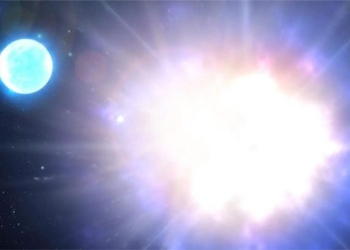The Atlas V rocket carrying satellites lifted off from Cape Canaveral in Florida at 2:06 PM local time on Friday. The launch was conducted by the United Launch Alliance (ULA), a joint venture between Boeing and Lockheed Martin.
After its establishment, the company founded by Jeff Bezos announced that their Kuiper Project aims to provide “high-speed, affordable broadband to underserved and unserved communities around the world” with over 3,200 satellites in low Earth orbit (LEO).
Rajeev Badyal, vice president of technology for Project Kuiper, stated: “We have conducted extensive testing in our lab and have high confidence in our satellite design, but there’s nothing like real-world testing in orbit.”

Jeff Bezos stated that the goal of the satellite project is to provide “high-speed, affordable broadband to underserved and unserved communities around the world.” (Photo: AFP).
The company announced it would invest $10 billion into the project and has secured 77 heavy-lift launches with commercial providers Arianespace, ULA, and Bezos-owned Blue Origin.
According to Amazon, the first operational satellites of the Kuiper project are set to launch in early 2024, with hopes that initial testing with customers will take place by the end of next year.
The test on Friday aimed to establish communication between the probes and Earth, deploy their solar panels, and confirm that all equipment was functioning correctly and at the desired temperatures.
Two prototypes will subsequently be deorbited and disintegrate in the Earth’s atmosphere at the end of the testing mission.
These services are designed to provide internet access to even the most remote and hard-to-reach areas of the world, including war zones and disaster-stricken regions.
Musk’s SpaceX launched the first batch of over 3,700 operational Starlink satellites in 2019 and remains the largest company in this field.
London-based OneWeb is another early entrant into this emerging sector. Given the strategic importance of this technology, many other countries are also eager to participate in this domain.
China plans to launch 13,000 satellites as part of the GuoWang constellation, while Canada’s Telesat will add an additional 300 satellites, and the German startup Rivada is targeting 600 satellites.





















































